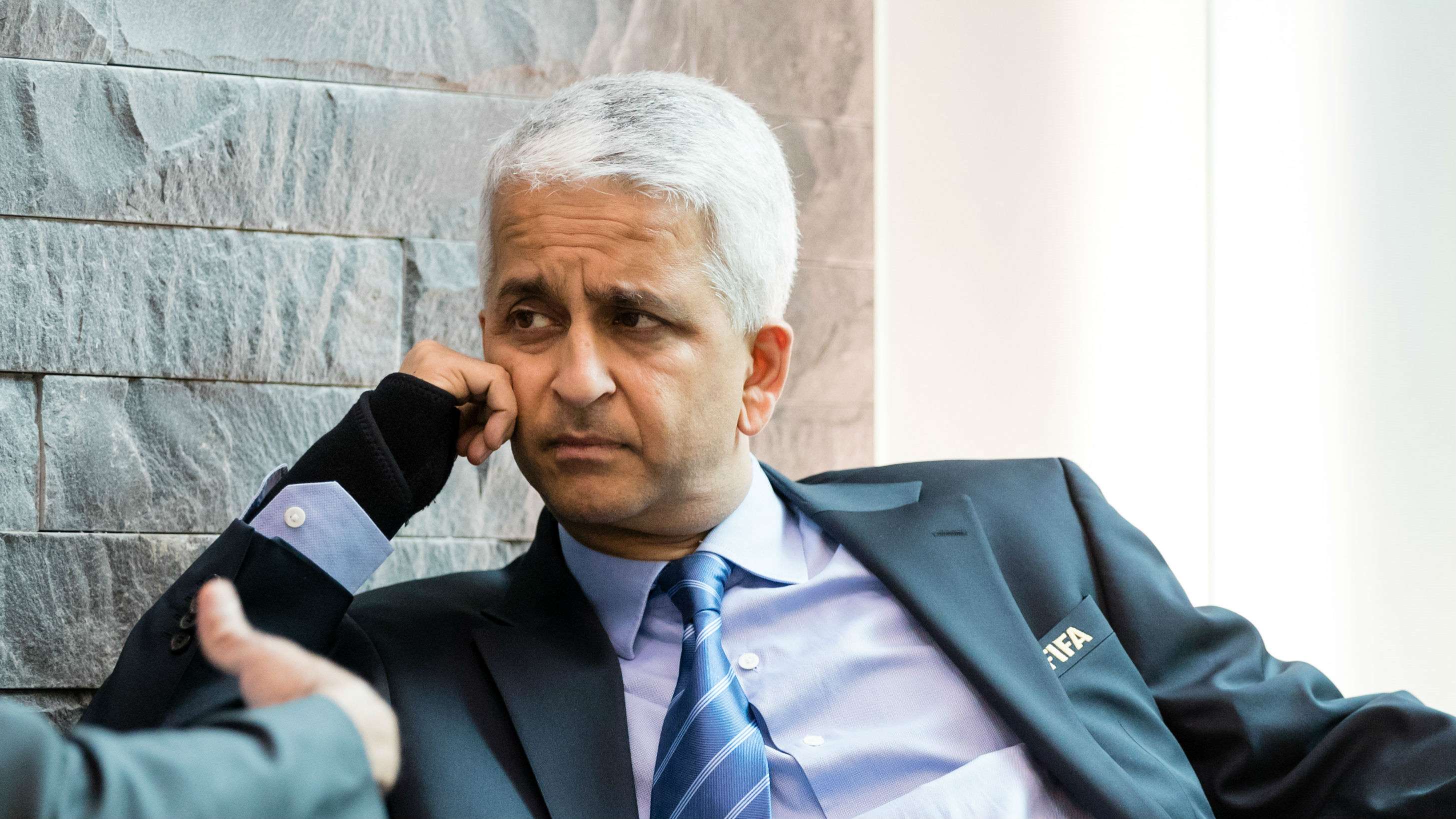U.S. Soccer president Sunil Gulati spent decades behind the scenes in American soccer, helping grow the sport as one of its most influential leaders. It is that history that surely has Gulati feeling like he deserves a chance to finish the work he has started.
A growing number of people in American soccer disagree, and suddenly the man who used to thrive behind the scenes is front and center as the target of growing resentment that has him standing now as the most-hated man in American soccer.
That may sound like an extreme label, but that's what happens when a national team misses a World Cup for the first time almost 30 years, and you're the man who hired the two coaches who steered the team into a catastrophic World Cup qualifying failure.
That is why reporter after reporter asked Gulati if he would resign — and if not, why not — during Friday's conference call to discuss the U.S. team's failed qualifying bid. The questions ultimately pushed Gulati to defend himself, which wasn't easy on a day he was addressing an indefensible failure.
When asked why he felt like he deserved to keep going as U.S. Soccer president, Gulati responded: "Where the sport is now and the role I played in it and the role I believe I can play going forward if I choose to run. Plus we have the World Cup bid. The sport is in a very, very different place than it was 10 years ago or 30 years ago when I first got involved. It's all of that."
 Getty Images
Getty ImagesGulati's resume is unmatched in American soccer in terms of playing a key role in building the sport and U.S. Soccer, not to mention his growing role as a power broker in the global game. The world watched him wield his considerable political prowess to help steer Gianni Infantino into the office of FIFA president, working the room at FIFA Congress like an American soccer version of Petyr Baelish, the conniving Game of Thrones character known as Little Finger.
Much like Little Finger, Gulati did, and does, some of his best work behind the scenes, steering others into power, and pulling strings like a puppet master, thus in many cases giving himself the real control.
American soccer has benefited tremendously from Gulati's political prowess and leadership, but his impressive body of work has been overshadowed by the disappointment of the past six years, and the failures of the coaches Gulati chose to hire to lead the U.S. men's national team.
Jurgen Klinsmann is long gone, having been forced out on a mountain of cash after five largely mediocre years. He was the man Gulati believed could transform the U.S. into a world power, or at the very least a much better team than he found it. It was Gulati who signed Klinsmann to a new contract before he'd even coached in his first World Cup with the U.S., setting the Americans up for a largely lackluster two years after what was a decent 2014 World Cup showing.

Gulati held on too long to his marriage to Klinsmann, a fact that helped plant the seeds for the qualifying disaster. Gulati must have at least considered firing Klinsmann after the failed fourth-place finish at the 2015 Gold Cup, but ultimately did nothing, giving the German-born coach another year to make progress.
The opposite happened, and by the time the U.S. walked off the field in San Jose, Costa Rica the victims of a 4-0 beating, the 0-2 qualifying hole forced Gulati to make a move, and call on Bruce Arena to salvage the mess.
Arena nearly pulled it off, and almost helped make Gulati look like a genius, but then came the losses to Costa Rica in September and Trinidad & Tobago last week. All of a sudden Gulati was left holding the receipt for another failed coaching hire.
The look on Gulati's face after Tuesday's loss said it all. He was crushed, visibly beaten down by a sequence he could never have envisioned. A master politician with a mean poker face, Gulati struggled to hide his dismay, though he still managed to muster the energy to face the media, and try to put a brave face on things. He insisted it wasn't time for rash decisions, stated that wholesale changes weren't necessarily what was needed.
Arena's resignation on Friday was a foregone conclusion, but Gulati stood firm in his commitment to seeing out his current term. As defiant as he was in the face of mounting calls to resign, Gulati did at least finally sound like someone who realizes he made mistakes.
"There are things you would do differently," Gulati said on Friday. "That's probably true for all of us and it's certainly true for me. The number of places that one can make substantive changes or decisions in my role are relatively limited, but they're big decisions. The same is true for the players or the coach.
"Any time you don't achieve the results you want, you look back and you would do some things differently," he added. "I don't think I want to get into specifics because quite often they're personnel decisions, so I don't think I'm going to get into any specifics, but I would certainly do some things differently."
Gulati made it clear he would not be stepping down, and has yet to make a final decision on whether he would run for re-election next year, saying a decision would be coming in the weeks ahead.
"We have a lot of things on our agenda including a World Cup bid that is due at the end of March and a decision in June," Gulati said when asked why he wasn't resigning immediately. "I don't plan to do that and it's not the case that most of the people around the world do that. Most coaches do, but it's not the case that most presidents do, and I'm not planning to."
It is understandable for Gulati to want to see out his current term, and securing the 2026 World Cup for the U.S. as co-host would be another big feather in his cap. Beyond that, however, Gulati needs to step aside and let someone else run U.S. Soccer and pass on running for re-election. He should step away from U.S. Soccer and focus on his work on FIFA's executive board, where he can still make a positive impact for American soccer.
It surely won't be easy for a man who has put so many decades into the game in the U.S. to leave U.S. Soccer, but it's time. Aside from the very real possibility that backlash from the World Cup qualifying debacle would lead to him losing an election if he ran anyway, the healing from the momentous World Cup qualifying disaster won't really begin until new leadership can step in and chart a course toward recovery.
The sooner that happens, the sooner the American soccer public will be able to direct its energy and focus on rebuilding and recovering, rather than on the man many of them feel is the most to blame for the current disaster in the first place.
